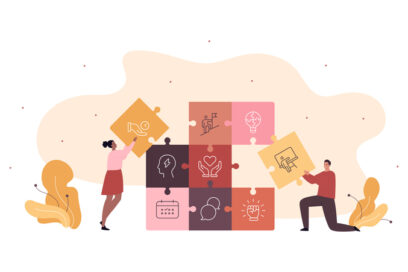Despite the extensive discussions surrounding large language models such as GPT-4, Bard and Bloom, numerous companies are focused on developing an even more potent technology known as artificial general intelligence, or AGI.
What is that, you ask?
Essentially, AGI is the representation of generalized human cognitive abilities in software so that, faced with an unfamiliar task, the AGI system could find a solution. While GPT has undoubtedly impressed many with its abilities, envision a scenario where GPT-4 integrates image and video generation and recognition, advanced reasoning capabilities, and possesses the internet’s entire real-time knowledge. The intention of an AGI system is to perform any task that a human being is capable of.
What’s more: It’s on the horizon for higher education.
The new wave of challenges
Schools have been through technological changes before, but COVID-19 brought about a significant shift as schools had to swiftly adjust to remote learning. In real-time, they increased their utilization of technology to cater to students studying from home, devising methods to keep remote learners connected and actively engaged. Tools like video conferencing platforms, online learning management systems and interactive whiteboards were employed to recreate the classroom environment for remote students. The response was quick and, for the most part, effective.
But AGI presents an entirely different challenge, and schools are far from prepared for it. During COVID-19, schools managed to adapt by piecing together existing technologies and upgrading them to address the changing learning landscape. However, AGI is a leap into uncharted territory. The issue lies in the fact that we cannot rely on repurposing existing technologies to overcome this challenge.
What will education look like when AGI has the capability to construct PowerPoint presentations, generate virtual professors with striking realism (akin to deepfakes) who can deliver “live” video lectures, develop and grade exams and provide answers with knowledge surpassing that of the most intelligent individuals in history?
Honestly? I don’t know – no one does. And that’s what makes this so exciting!
What we do know is that the transformation is going to touch every area of every higher education, and institutions can take several actions right now as we prepare for what’s to come.

Create innovative ways to assess new and prospective students
The best way to prepare students for AGI is to get a good understanding of how they’re feeling and interacting with technology now. This can only be done by effective and equitable assessment for all students, and there isn’t a one-size-fits-all approach. Obtaining a proactive, clear gauge on students’ strengths, hurdles and areas for improvement at school can inform how to implement AGI effectively.
For example, try replacing standardized testing with adaptive testing, which can effectively measure expertise across various subject areas, tailoring the questions based on the student’s performance. You could also try proctored written or oral exams to ensure the integrity of the evaluation process. Lastly, incorporating hands-on, project-based assignments that showcase required competencies can provide a more comprehensive understanding of a student’s abilities. Equip students for changing, real-world challenges
While we can’t discern exactly how AGI will affect education and beyond, we can be sure our students are prepared for a radically different technological landscape. It’s important to instill valuable skills and adaptability into our world’s future generations and leaders to help them thrive in an ever-changing economy and hiring pool.
As an entrepreneur hiring recent graduates, I value skills such as critical thinking, technology use, communication, teamwork and creativity. These abilities are key to success in a growing and dynamic business environment.
Envision schools as being data-driven, where virtual agents will handle many services. This entails the necessity for high-quality and reliable data. It also implies the need to consider retraining your staff. Fine-tuning your data processes is your organization’s key blueprint. If data is unreliable or invalid, adapting future solutions may end up being pointless and a waste of resources.
A good approach here is the creation and maintenance of accurate, up-to-date websites, knowledge bases and Q&A databases. Also, introducing campus systems that integrate seamlessly with each other and deliver personalized information will be key to enhancing data use.
Establish a network of extracurricular activities
What unique contributions should institutions offer beyond the classroom? As education continues to become a digital-first sector, it’s important to establish opportunities for student networking and community outside the classroom and without technology so students can feel engaged and empowered to accomplish anything with each other, not just through smart solutions, like AGI.
Good examples here could be field trips, a club and extracurricular ecosystem on campus, physical and educational resources (e.g., quantum computer labs, etc.) and additional community resources.

The clock is ticking
Education and student engagement as we know it will forever be changed by AGI. At this very moment, clever entrepreneurs are already thinking about establishing for-profit virtual schools capable of providing an equivalent academic experience to any institution globally.
In short: There is no time to lose. Now is the opportune moment for schools to begin crafting strategic plans, retraining staff, forging partnerships and pinpointing crucial investments to attract and retain students in what could potentially be the most momentous transformation in the last 10,000 years.
Massive disruption is coming, and you are going to want to not only be prepared but ahead of the curve when it fully arrives.
Opinions expressed by SmartBrief contributors are their own.
_________________________
Subscribe to SmartBrief’s FREE email newsletter to see the latest hot topics on higher education. It’s among SmartBrief’s more than 250 industry-focused newsletters.
